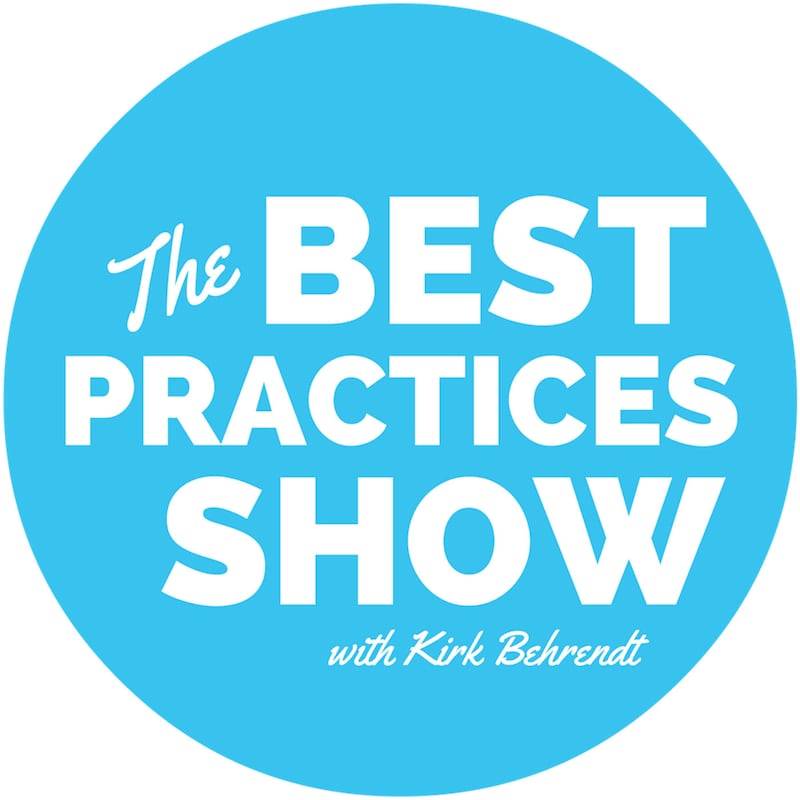Dr. Lee Ann Brady has a practice in Glendale, AZ called Desert Sun Smiles. She is also the woman behind Restorative Nation a supportive dental learning community. She has been teaching dental education since 2005 when she became the Clinical Director for the Pankey Institute. In 2008, she became Executive VP of Clinical Education at Spear Education. She takes continuing education and the latest technology seriously. She devotes hundreds of hours every year to dental continuing education, and she continues to teach and host courses.
Dr. Brady is a good friend of mine and a lecturer and educator that seems to be everywhere. Today, we talk about the importance of dental education, how risks and benefits are the core of patient communication, and having a great relationship with patients. Dr. Brady shares why she doesn’t have patients sign an informed consent form, and how she takes the time to explain the relevant concerns and risks and benefits to the patient. We also talk about choice and creating a practice that you love.
You can find Dr. Lee Ann Brady here:
Restorative Nation
Desert Sun Smiles
Dr. Lee Ann Brady
Show Notes
[02:09] Dr. Brady has the ability to take things that are complex and break them down for other dentists.
[02:37] Dr. Brady loves learning and understanding everything about dentistry and her dental practice. She also loves giving back and teaching because she knows it makes a huge difference.
[02:48] She has a practice in Glendale, AZ.
[03:12] Risks and benefits. She thinks the core of patient communication is about risks and benefits.
[03:39] My patients think of the cost. How long it will take to do a procedure. Implant dentistry takes 6-9 months. Any surgical procedure can be considered a risk by some people.
[04:34] Dr. Brady's practice is built on trust.
[05:03] She rarely does an informed consent. It represents that there is something not significantly right about the relationship with the patient.
[06:13] Dr. Brady talks about how important it is for her to have a great relationship with her patients.
[06:16] She discusses relevant risks and benefits with patients. Not every possible thing, but the things that are relevant to the patient.
[07:21] Dr. Brady quit dentistry and then went back to it. She was a young solo practitioner. She waited until the pain got so bad, and she felt she couldn't practice anymore. She had the ability to alter her experience of the practice of dentistry. She just didn't know or didn't look for for ways to do that at the time.
[08:23] Sometimes the universe has plans for us that we don't know about.
[08:47] When she left, she was overloaded with business responsibilities, working out the technical things of managing her team, being a dentist, and she had a young family.
[09:45] She didn't have an intention of going back to dentistry. She sold her practice and decided to stay home with her kids.
[10:23] Her husband lost his IT job twice. Dr. Brady started looking for a job and two weeks later she became an associate. She didn't set out to do things differently, but her new practice was doing things differently and she actually liked coming to work.
[11:54] How dentistry is a choice and you can do it the way you want.
[12:14] Risks and benefits of working three days a week. You can anything you want around how you practice dentistry. Then find the costs of doing it.
[12:58] If you are enjoying yourself more, you will be more productive.
[13:29] A story where a patient called Dr. Brady's office for an emergency. Dr. Brady was out of town and wanted her associate to be sure to read the notes in the chart. Before even talking to the patient, he had ownership of his choices based on the options that she gave him. He knew the prognosis may not be good and that he would have to make a different choice.
[16:15] Dr. Brady is a master communicator who never stops trying to get better. Risks and benefits are threaded throughout the entire practice and everything that Dr. Brady does.
[17:13] If Dr. Brady doesn't do a comprehensive exam and know the risk factors, she can't have a conventioneer with the patient about that.
[18:17] A patient fee concern after a 4 year treatment plan. Do they need to do a patient check in for these long-term cases.
[21:18] Weighing risks and benefits in all decisions that you make. Working alongside the patient is true advocacy.
[21:51] The teeth and choices are the patients. The dentists job is to give them the information to successfully make their own choices. The level where the information is foundational.
[23:14] After the choice, the dentists job is to execute the care, but before it is the patients choices. This is a better way to think about it.
[24:18] Slowing down your conversations and getting to know people. Some people need time to process.
[25:48] Deciding they want to do it is a different decision then deciding how to do it.
[27:15] In dentistry, we have the gift of time. We see patients over and over in an extended period of time. It works better not asking the patient to do everything in one sitting.
[28:17] Being fully present in your patient conversations.
[29:12] Making the investment of mutual understanding and having people trust you.
[29:51] Asking what dentistry needs to look like for you to love it. Figuring out what works for you and your business.
[31:15] Changing your practice slowly and progressively.
[33:07] Dentistry is the number one job in the United States.
Links and Resources:
Pankey Institute
Spear Education
Restorative Nation
Desert Sun Smiles
Dr. Lee Ann Brady




